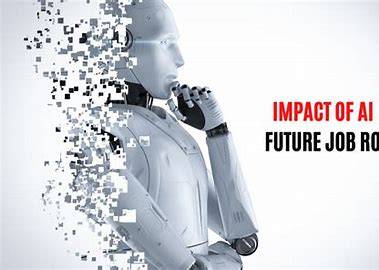The Future of Work: AI and Its Impact on Employment
Artificial intelligence (AI) is transforming industries at a rapid pace, and its influence on the world of work is becoming increasingly evident. While AI has been around for decades, it is only in recent years that its capabilities have reached a level where it can dramatically impact the workforce. From automating repetitive tasks to creating entirely new job categories, AI is reshaping the way we work and the types of jobs that will be available in the future.
One of the most notable effects of AI is its ability to automate tasks that were traditionally performed by humans. In industries like manufacturing, customer service, and logistics, AI is streamlining operations, improving efficiency, and reducing the need for manual labor. For example, chatbots and virtual assistants are now capable of handling customer inquiries, freeing up human employees to focus on more complex tasks. Similarly, autonomous vehicles and robots are taking over manual labor in warehouses and factories, making processes faster and more cost-effective.
While automation is eliminating some jobs, it is also creating new opportunities in fields related to AI technology. As AI continues to evolve, the demand for skilled workers in areas like machine learning, data science, and AI ethics is growing rapidly. These fields require workers who can develop, maintain, and regulate AI systems, and there is an increasing need for experts who can navigate the ethical challenges posed by AI’s capabilities. As a result, AI is expected to generate more high-skilled jobs in tech and research, particularly in the development and deployment of AI systems.
However, the transition to a more AI-driven workforce is not without challenges. One major concern is the potential displacement of workers in low-skilled, repetitive jobs. For example, administrative assistants, data entry clerks, and even truck drivers may face job insecurity as AI technologies automate their roles. To address this issue, experts argue that it is crucial for workers to upskill and adapt to the changing job market. Many experts recommend that individuals invest in learning new skills, such as coding, data analysis, and AI development, to stay competitive in the workforce.
Governments and businesses also play a vital role in ensuring that workers are prepared for the future of work. Public policy initiatives aimed at retraining displaced workers, offering job transition programs, and promoting lifelong learning are essential to helping workers adjust to new employment realities. Some have even proposed the idea of universal basic income (UBI) as a safety net for workers affected by automation, though this remains a topic of debate.
Moreover, as AI begins to dominate various industries, it will also create a shift in the nature of work itself. Human workers will need to collaborate more closely with AI, using their creativity, emotional intelligence, and problem-solving abilities to complement the strengths of AI systems. This collaboration will likely result in more specialized roles that involve overseeing AI technologies, interpreting data, and making decisions that require human judgment.
AI is also expected to revolutionize sectors like healthcare, finance, and education. In healthcare, AI can assist in diagnosing diseases, analyzing medical images, and developing personalized treatment plans. In finance, AI can help predict market trends, detect fraud, and automate trading. In education, AI-powered platforms are being used to provide personalized learning experiences for students, helping teachers deliver more tailored instruction.
In conclusion, the future of work in an AI-driven world holds both challenges and opportunities. While automation may disrupt certain industries, it is also creating new jobs and industries that didn’t exist before. The key to navigating this shift will be adaptability. Workers, employers, and governments must all play their part in embracing AI’s potential while ensuring that the workforce is equipped to thrive in the evolving job market. AI will not replace humans but rather work alongside them, and the future of work will be shaped by how well we adapt to this transformative technology.




No comments yet
Be the first to share your thoughts!